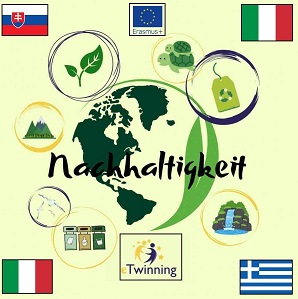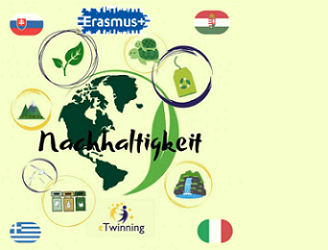

Gemeinsam die Zukunft gestalten- nachhaltig die Welt mitgestalten und Veränderungen vorantrieben-
Shaping the future together – helping to shape the world sustainably and driving change
Introduction: The first Hungarian meeting of head teachers and project coordinators focused on introducing the schools, discussing sustainability issues and the organisational tasks of project management. The event offered the participating teachers the opportunity to share their experiences, develop ideas together and initiate long-term co-operations.
Programme details The meeting took place from 16 to 20 July and offered a
programme, which combined theoretical discussions, practical activities and cultural and community-building activities.
On the morning of the first day, the participants visited the Evangelical Kossuth Lajos Grammar School in Nyíregyháza. The guests were given an insight into the school’s sustainability initiatives and pedagogical methods. The participants then learnt about the digital project management tool ClickUp, which is intended to facilitate future collaboration.
In the afternoon, the project’s programmes and events were coordinated and the details of the project documentation and administrative tasks were discussed.
The second day focussed on the financial aspects of the project. The participants were given an overview of the rules for utilising the funding, the invoicing of costs and the documentation requirements. The topics of reimbursable and non-reimbursable costs and the processes for document transmission and archiving were particularly emphasised.
The project’s communication platforms (Facebook, Instagram, TikTok, podcasts) and their use were then discussed. It was decided that a short TikTok video on the topic of sustainability would be produced every month and that each partner country would produce four podcasts in German with English subtitles.
The third day focussed on sustainable teaching and environmentally conscious thinking. In interactive workshops, the participants discussed ways to measure and reduce the ecological footprint as well as the development of questionnaires for pupils. Hungary was responsible for creating the questionnaire, which the other partner countries will translate into their respective languages and use in their schools.
The further development of the project website and social media platforms, which are coordinated by the Greek partners, was also discussed.
In addition to theoretical approaches to sustainability, the participants had the opportunity to familiarise themselves with the sustainable practices of a local company. During a presentation and factory tour, the focus was on environmentally friendly solutions, recycling and energy saving.
In the afternoon, the upcoming tasks for the next period were discussed, in particular the challenges of the European Sustainability Week (20-26 September 2025), during which a sustainability-related task is to be implemented every day.
On Saturday, the participants explored the cultural and natural sights of Nyíregyháza and the surrounding area. A visit to Sóstó offered insights into the local natural conditions and the topics of sustainable tourism.
On the last day, the participants evaluated the event together, after which certificates and certificates of participation were presented. The meeting officially ended with a joint farewell dinner.
Results and further plans- The meeting successfully achieved its objectives as the participants:
- were given a comprehensive overview of the project objectives and requirements,

- developed the sustainability programme and future tasks
- agreed on the communication and financial management tasks,
- prepared the programmes for the next international meetings.
In the coming period, students and teachers from the individual countries will continue their co-operation in the field of sustainable development and prepare the next international meetings in Sicily, Slovakia, Greece, Hungary and Strasbourg.
Summary
The kick-off meeting in Nyíregyháza provided an excellent opportunity to launch the project, build relationships between the participating countries and deepen sustainable thinking in education. Through successful co-operation, the project can contribute to the long-term promotion of environmentally conscious thinking among students and teachers and to the strengthening of international relations.






No Comments Yet